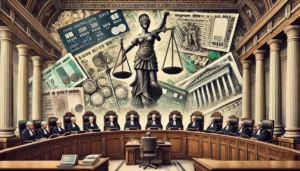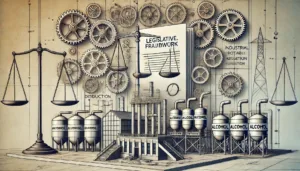Case Citation
Court: Supreme Court of India
Case Title: The State of Orissa v. Pratima Behera
Case No.: Criminal Appeal No. 3175 of 2024 (@ SLP (Crl.) No. 10262 of 2024)
Date of Judgment: December 19, 2024
Judges: Hon’ble Justice C.T. Ravikumar and Hon’ble Justice Sanjay Karol
Facts of the Case
The case arises from an FIR filed in 2019 alleging disproportionate assets of Anil Kumar Sethi, a public servant, to his known sources of income. He was an Assistant Engineer in the Rural Works Sub-Division of Puri, Orissa, accused of possessing disproportionate assets amounting to ₹40,54,561. His wife, the respondent, was implicated as a co-accused under charges of abetment. The High Court of Orissa discharged her, which led to this appeal.
Contentions of the Appellant
The State of Orissa contended that a non-public servant could abet an offense under Section 13(1)(e) of the Prevention of Corruption Act, 1988. It argued that a prima facie case was made against the respondent due to her financial transactions and unexplained assets. The State submitted that the High Court erred in its interference and disregarded materials indicating a conspiracy between the respondent and her husband.
Contentions of the Respondent
The respondent, Pratima Behera, claimed she was financially independent, regularly filed income tax returns, and derived income from legitimate sources such as dairy farming and tuition. She argued that her income tax records were withheld by investigating authorities during the trial. She also stated that there was no evidence of her abetting her husband’s actions.
Issues in the Judgment
- Whether the High Court was justified in discharging the respondent under Section 239 of the CrPC.
- Whether there existed prima facie evidence of the respondent’s abetment in the accumulation of disproportionate assets.
- Whether the High Court correctly interpreted the scope of Section 239, CrPC, regarding the discharge of the accused.
Observations/Findings of the Supreme Court
The Supreme Court held that the High Court exceeded its jurisdiction under revisional powers by quashing charges based on the absence of “clinching evidence.” The Court emphasized that at the stage of framing charges, the sufficiency of evidence to convict is irrelevant. A prima facie case supported by material evidence suffices. The Trial Court had correctly framed charges, which the High Court ought not to have quashed prematurely.
Principles Laid Down by the Court
- At the stage of framing charges, only a prima facie case needs to be established. Detailed scrutiny of evidence is unwarranted.
- The High Court, in revisional jurisdiction, must limit its examination to procedural and jurisdictional irregularities.
- Presumption of innocence persists, but strong suspicion can justify the continuation of the trial.
- Abetment by a non-public servant under the Prevention of Corruption Act must be assessed based on prima facie materials indicating conspiracy or active participation.
Final Order
The Supreme Court allowed the appeal, setting aside the judgment of the High Court, and directed the Trial Court to proceed with the case expeditiously.
Importance of the Judgment to Society
This judgment reinforces the principle that the judicial process must not prematurely halt prosecutions at the framing of charges stage. It safeguards the integrity of the legal process by ensuring that trials proceed when a prima facie case exists. It also clarifies the scope of revisional powers and upholds accountability in corruption cases involving public servants and their associates.








